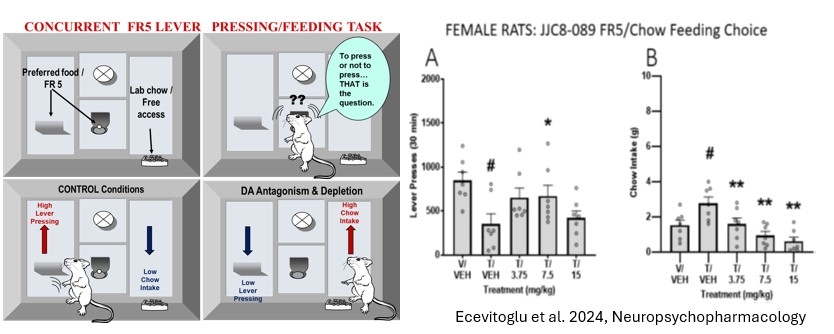You are here
Effort-related effects of atypical dopamine transport inhibitors: Implications for treating motivational dysfunctions in depression
Speakers
Abstract
Depression is not only a disorder of affect. It also is characterized by debilitating motivational impairments marked by psychomotor slowing, anergia, fatigue, and reduced exertion of effort. The most commonly prescribed antidepressants are serotonin transport (SERT) inhibitors such as Prozac, which are useful for treating mood and anxiety-related symptoms, but are relatively poor at treating motivational dysfunctions. A combination of clinical and preclinical evidence indicates that enhancing dopamine transmission can enhance the exertion of physical effort and have positive effects on motivational symptoms. Drugs that block the dopamine transporter (DAT) and elevate dopamine transmission can reverse the low-effort bias induced by pharmacological or inflammatory conditions in animal models. But not all DAT inhibitors have the same binding characteristics as cocaine or amphetamines. Atypical DAT inhibitors are being investigated for their potential use as treatments for motivational dysfunction. It is possible that novel atypical drugs that inhibit DAT but are not classical psychomotor stimulants could be useful for treating effort-based motivational symptoms in depression and other disorders. 

